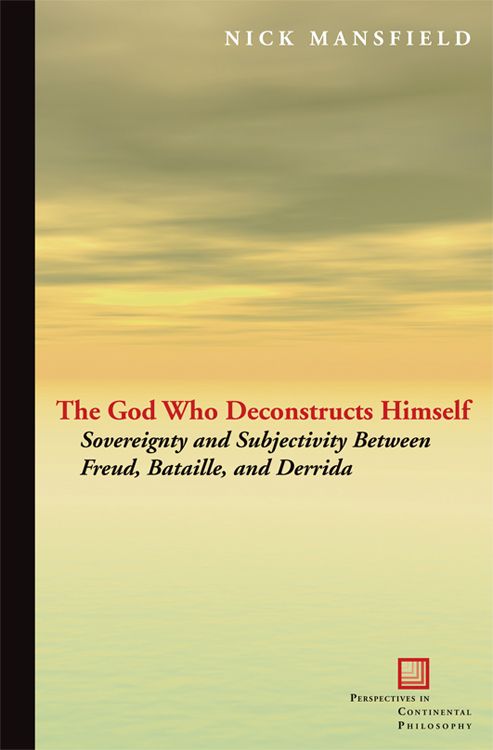The God Who Deconstructs Himself
Sovereignty and Subjectivity Between Freud, Bataille, and Derrida

This book can be opened with

No topic has caused more discussion in recent philosophy and political theory than sovereignty. From late Foucault to Agamben, and from Guantanamo Bay to the 'war on terror,' the issue of the extent and the nature of the sovereign has given theoretical debates their currency and urgency. New thinking on sovereignty has always imagined the styles of human selfhood that each regime involves. Each denomination of sovereignty requires a specific mode of subjectivity to explain its meaning and facilitate its operation.
The aim of this book is to help outline Jacques Derrida's thinking on sovereignty - a theme which increasingly attracted Derrida towards the end of his career - in its relationship to subjectivity. It investigates the late work Rogues: Two Essays on Reason, as not only Derrida's fullest statement of his thinking on sovereignty, but also as the destination of his career-long interest in questions of politics and self-identity. The book argues that in Derrida's thinking of the relationship between sovereignty and subjectivity - and the related themes of unconditionality and ipseity - we can detect the outline of Bataille's adaptation of Freud. Freud completed his 'metapsychology,' by defining the 'economic' nature of subjectivity. In Bataille's hands, this economic theory became a key to the nature of inter-relationship in general, specifically the complex and shifting relationship between subjectivity and power. In playing with Bataille's legacy, Derrida connects not only with the irrepressibly outrageous thinking of philosophy's most self-consciously transgressive thinker, but with the early twentieth century scientific revolution through which 'energy' became ontology. As with so many of the forebears who influenced him, Derrida echoes and adapts Bataille's thinking while radically de-literalising it.
The results are crucial for understanding Derrida's views on power, subjectivity and representation, as well as all of the other key themes in late Derrida: hospitality, justice, otherness and the gift.
Mansfield’s work has a specific contribution to make both through the
distinctive focus of its reading and through its insightful analyses…the
author’s scholarship is excellent, showing not only a mastery of the
relevant literature, but also a thoughtful and fine-tuned analysis of its
complexities.
A rich and provocative reading, the focus of which contributes a new perspective to the literature on Derrida and deconstruction.

